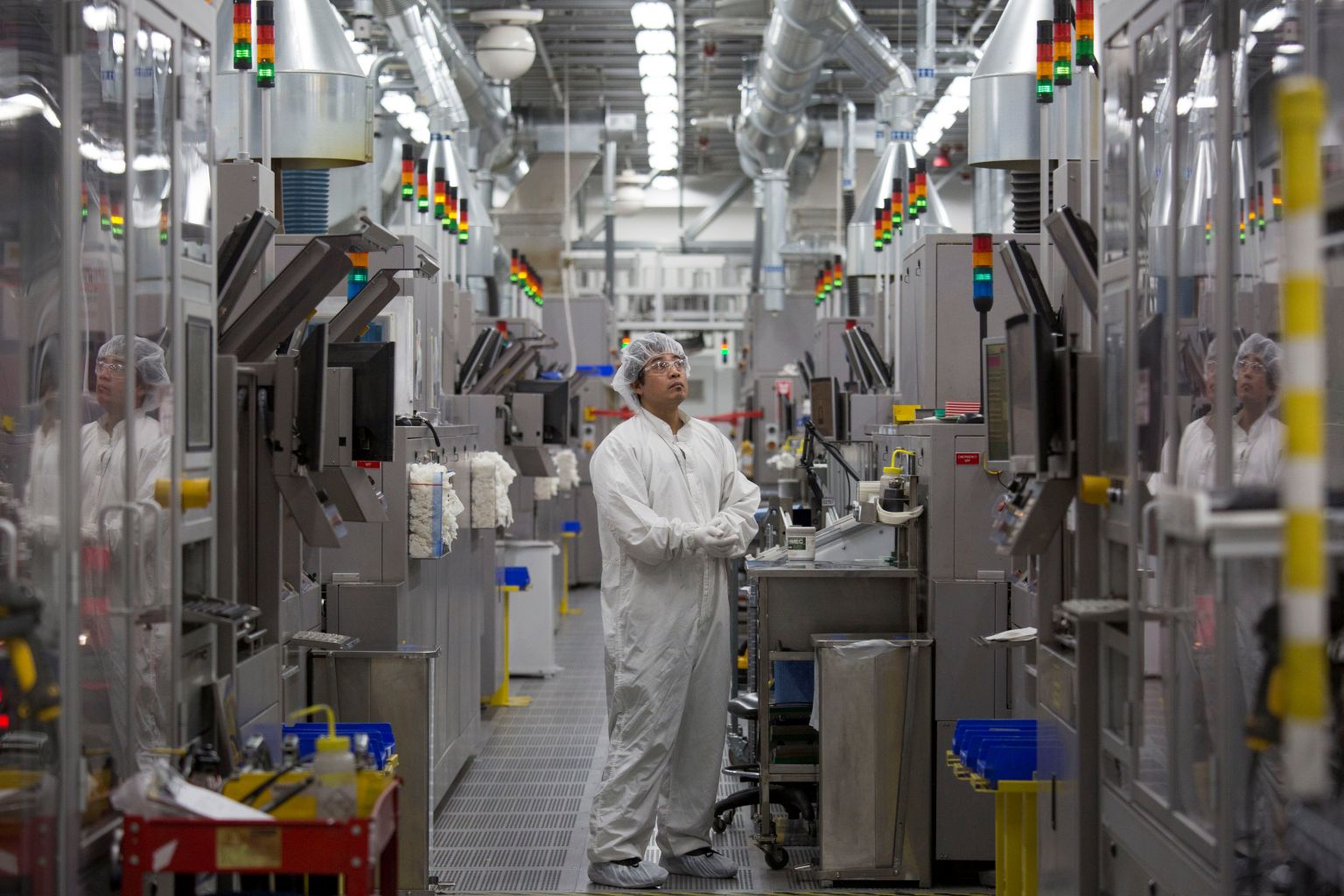Beijing to announce retaliatory measures on Wednesday: Global Times' editor-in-chief
Sign up now: Get insights on Asia's fast-moving developments

The Trump administration slapped 25 per cent tariffs on some 1,300 industrial technology, transport and medical products to try to force changes in Beijing's intellectual property practices.
PHOTO: REUTERS
Follow topic:
BEIJING (REUTERS, WASHINGTON POST, BLOOMBERG) - Global Times's Editor-in-Chief Hu Xijin said on Twitter that China will announce retaliatory steps on Wednesday (April 4) afternoon, after the US administration unveiled a list of Chinese goods that could face additional US tariffs.
"According to information I received, China's massive plan in retaliation of US tariffs will be released this afternoon Beijing time," Hu said.
Global Times is run by the ruling Communist Party's official People's Daily, although its stance does not necessarily reflect Chinese government policy.
It said on Monday that China has "nearly completed its list of retaliatory tariffs on US products and will release it soon".
"The list will involve major Chinese imports from the US," the newspaper wrote, without saying which items were included, though the Global Times has suggested in the past that Beijing could hit major industries such as soybeans and aerospace.
China's commerce ministry said on Wednesday (April 4) it "strongly condemns and firmly opposes" the proposed US tariffs following the Section 301 probe and will take counter measures, according to the official Xinhua news agency.
The response follows a move by the Trump administration on Tuesday to slap 25 per cent tariffs on some 1,300 industrial technology, transport and medical products to try to force changes in Beijing's intellectual property practices.
The Ministry of Commerce (MofCom) said it "will soon take measure of equal intensity and scale against US goods".
"We have the confidence and ability to respond to any protectionist measures by the United States," said MofCom.
China's embassy to the US said in a statement released late Tuesday that it "strongly condemns and firmly opposes" the tariffs.
"As the Chinese saying goes, it is only polite to reciprocate," the embassy said, adding that China would take "corresponding measures of equal scale and strength against US products."
Chinese Foreign Ministry spokesman Lu Kang also made a response on Wednesday, saying the US tariff proposals are "typical unilateralist and protectionist action".
China strongly condemns and firmly opposes such action, Lu said.
"The US has this vicious intention to strangle China's high-tech innovation," said Wei Jianguo, former vice commerce minister and now an executive deputy director of the China Center for International Economic Exchanges, a government-linked think tank.
"China won't submit to the US bully. Our countermeasures will hit their soft spots."
The U.S. duties will likely provoke a strong response from China, said Carlos Gutierrez, U.S. commerce secretary under former President George W. Bush.
"Wars start with battles, and the battles have started," Gutierrez, co-chair of the consulting firm Albright Stonebridge Group, said in an interview in Mexico City.
Chinese President Xi Jinping "can't afford to look like he's getting pushed around."
If China responds to this latest tariff action on a dollar-for-dollar basis, it could damage more than one-third of total US exports to China and Hong Kong, said Brad Setser, a former White House economist in the Obama administration and now a senior fellow for international economics at the Council on Foreign Relations.
The United States shipped more than US$130 billion in goods to China last year, plus an additional US$40 billion to Hong Kong, much of which flows through the port city to the mainland.
Chinese action of that magnitude would impose substantial costs on both China's economy and that of the United States.
US farm groups are especially worried about being caught in the crossfire. China's response to Trump's steel and aluminum tariffs landed hardest on the agricultural sector, including fruit, wine and pork.
Future Chinese action is likely to hit the farm belt even harder. The US exported US$12.4 billion worth of soybeans to China last year, according to the Agriculture Department, down almost 13 per cent from the year earlier as Chinese buyers began turning to alternative suppliers such as Brazil.
The US Trade Representative's (USTR) office target list is broad and includes products from military shotguns to sewing machines.
The USTR list follows China's imposition of tariffs on US$3 billion worth of US fruit, nuts and pork to protest new US steel and aluminium tariffs imposed last month by US President Donald Trump.
"The findings of the US Section 301 investigation are a willful distortion of facts and full of selective assertions and allegations," said Zhang Xiangchen, Beijing's ambassador to the World Trade Organisation.
The investigation was made on Chinese imports under Section 301 of the 1974 US Trade Act.

